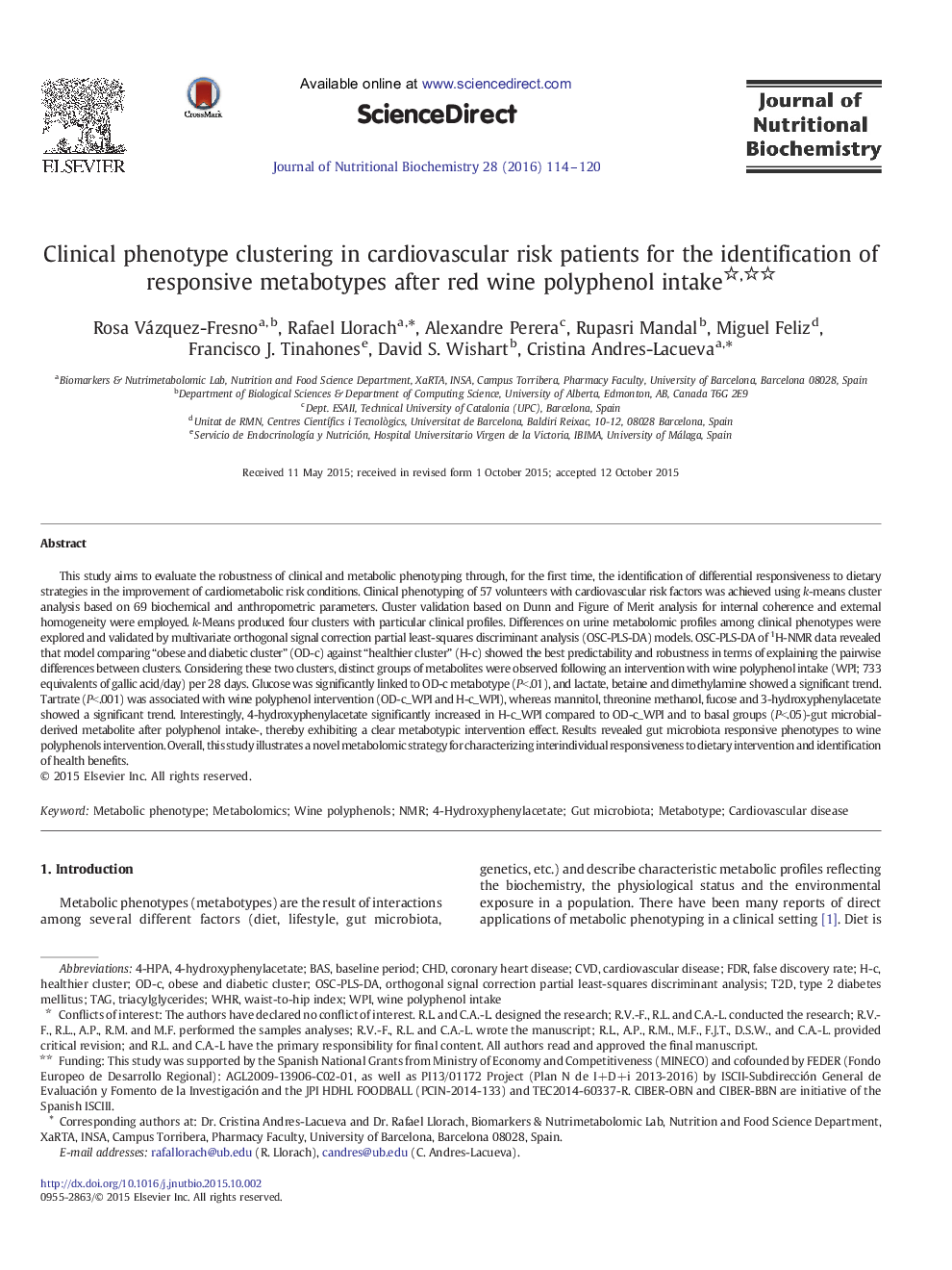| کد مقاله | کد نشریه | سال انتشار | مقاله انگلیسی | نسخه تمام متن |
|---|---|---|---|---|
| 1989606 | 1540640 | 2016 | 7 صفحه PDF | دانلود رایگان |
This study aims to evaluate the robustness of clinical and metabolic phenotyping through, for the first time, the identification of differential responsiveness to dietary strategies in the improvement of cardiometabolic risk conditions. Clinical phenotyping of 57 volunteers with cardiovascular risk factors was achieved using k-means cluster analysis based on 69 biochemical and anthropometric parameters. Cluster validation based on Dunn and Figure of Merit analysis for internal coherence and external homogeneity were employed. k-Means produced four clusters with particular clinical profiles. Differences on urine metabolomic profiles among clinical phenotypes were explored and validated by multivariate orthogonal signal correction partial least-squares discriminant analysis (OSC-PLS-DA) models. OSC-PLS-DA of 1H-NMR data revealed that model comparing “obese and diabetic cluster” (OD-c) against “healthier cluster” (H-c) showed the best predictability and robustness in terms of explaining the pairwise differences between clusters. Considering these two clusters, distinct groups of metabolites were observed following an intervention with wine polyphenol intake (WPI; 733 equivalents of gallic acid/day) per 28 days. Glucose was significantly linked to OD-c metabotype (P<.01), and lactate, betaine and dimethylamine showed a significant trend. Tartrate (P<.001) was associated with wine polyphenol intervention (OD-c_WPI and H-c_WPI), whereas mannitol, threonine methanol, fucose and 3-hydroxyphenylacetate showed a significant trend. Interestingly, 4-hydroxyphenylacetate significantly increased in H-c_WPI compared to OD-c_WPI and to basal groups (P<.05)-gut microbial-derived metabolite after polyphenol intake-, thereby exhibiting a clear metabotypic intervention effect. Results revealed gut microbiota responsive phenotypes to wine polyphenols intervention. Overall, this study illustrates a novel metabolomic strategy for characterizing interindividual responsiveness to dietary intervention and identification of health benefits.
Journal: The Journal of Nutritional Biochemistry - Volume 28, February 2016, Pages 114–120
